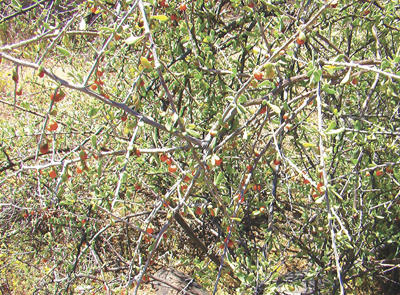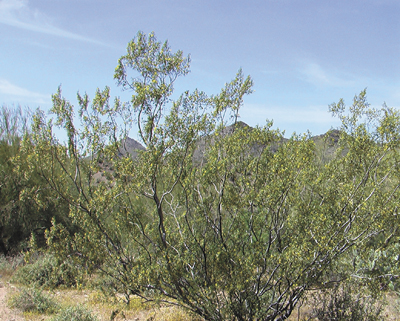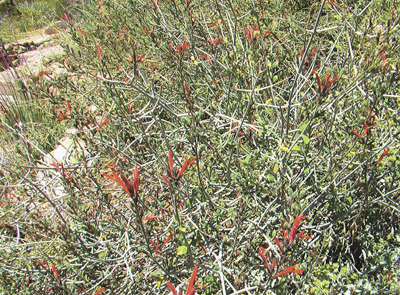How to tell a troubled teen from a normal teen
By Kathy Radina, M. Ed. | April 29, 2009
It's been almost six years since he entered my office, but I think of him often. I can still see his skinny brown legs sprawling out of his denim shorts, (they weren't so baggy back then) and his brown hair falling over his muted blue eyes. He was cold. He could look me square in the eye, and tell me he didn't care, and I believed him. He didn't care that he had stolen $365 from his grandmother, and now she couldn't pay the rent on the mobile home. He didn't care that his teachers were trying to give him one last chance to pass his freshman year of high school. And he didn't care about torturing the stray cats that happened to wander on to the property where he lived in West Phoenix.
He knew that he deserved things in his life, and not getting them was “pissing him off.” He deserved to make his own decisions about how he was going to live. He deserved to have fun; it was his right as a kid. And he deserved the stolen money to make this fun possible.
This could describe a lot of teens today, so what makes this boy different? He had no conscience. He had absolutely no sense of right and wrong, and of course nothing was his fault. If he needed the money he took it. He didn't like to work, so he didn't work. He was failing school because his teachers were stupid. And when he got caught using drugs on campus, it was the fault of the boy who brought them to school, not his for deciding to partake.
Over the years I've seen only about three young clients like this. His stepfather yelled a lot, and his mother used marijuana, but I've known lots of kids with troubled parents and they aren't amoral. One antisocial boy I counseled had a stay at home mom, and a father who was a dentist, and he was just as corrupt and incorrigible as this young man. So I can't blame all lack of moral sense on economic status or parenting.
I want to blame something however. I want to find some reason for this behavior so I can protect myself from it. I want to blame guns, music, TV, video games, Facebook and the entire Internet, but we all know people who engage in these activities who haven't killed anyone. There might be something we could do to identify people who could actually pull the trigger, and possibly get them some help.
The most seriously disturbed among us require the most attention. If you know of a child who consistently violates the basic rights of others, breaks the rules, and does the following, you may know a child who needs a serious intervention.
• Bullies, threatens or intimidates
• Has been physically cruel to people or animals
• Has stolen items (e.g. mugging, purse snatching, shoplifting)
• Has forced someone into sexual behavior
• Has deliberately destroyed others' property
• Has broken into someone else's house, building or car
• Often lies to obtain goods or favors or to avoid obligations ("cons" others)
• Often stays out at night despite parental prohibitions, or is truant from school (beginning before age 13 years)
I would suggest something like Banner Behavioral Health Adolescents Open for Change www.bannerhealth.com for a comprehensive assessment.
Within a completely normal range however, is the typical teen struggling with adolescence. This teen sometimes:
• Refuses to comply with adults' requests or rules
• Blames others for his or her mistakes or misbehavior
• Is touchy or easily annoyed
• Experiments with drugs, alcohol or tobacco
• Loses interest in school and allows grades to fall
• Experiences changes in eating and sleeping patterns
• Worries about everything from body shape to telephone calls
I have a suggestion, just in time for summer, to help shore up the confidence of the typical teen so he/she will be less likely to be swayed by negative influences. Workshops for Youth and Families, offers summer workshops for teens and their families. www.orho.org. These are fantastic week long support-building experiences that help young people gain the skills needed to successfully negotiate this stage of life. At the end of the week, if your child has not gained at least self-respect, I will be greatly surprised.
It may be important to know whom to blame for the hateful behavior of some young people, but it might be more important to insure they get the help they need. Augustana University education professor Larry Brendtro expressed it well, "kids who feel powerless and rejected are capable of doing horrible things."
Native Edibles and Medicinals: How you can benefit
April 29, 2009
Thurs., May 7 at Desert Foothills Library
CAVE CREEK – True or False? If you’re suffering from a sore throat, Jojoba, Buckwheat Bush, and Globemallow are three Arizona native plants that can act as a natural remedy.
The answer is true, but before you seek out these three plants, plan to attend the “Native Edibles and Medicinals: How You Can Benefit” program from 9 – 11:30 a.m. on Thursday, May 7 at Desert Foothills Library, 38443 N. School House Road, in Cave Creek.

Presented by Desert Foothills Land Trust (DFLT) and Desert Awareness Committee, the educational program will feature medicinal expert Diane Vaszily, of Cave Creek, native edibles instructor Lynne Hoss, of Cave Creek, and Stacy Fischer, DFLT conservation director.
Stacy Fischer said, “Come learn how to harvest free food, how to prepare and cook with native plants, how to use a solar oven, and how native plants can be used as medicinals.”

Vaszily has worked with numerous Native Americans including those from the Tohono O'odham, Navajo, Yavapai and Apache nations. During her presentation, she will discuss the health benefits of local native plants, such as Creosote, Mesquite, Prickly pear, Brittlebush, Ocotillo, Globemallow, Sage, and Mormon Tea.

Vaszily will also set the record straight regarding myths and other confusing facts about native plants.
Hoss will demonstrate how to make a Mesquite Bean Meal and Mormon Tea, and bring food samples and handouts, including Prickly Pear and Saguaro fruits. She will also discuss other common native edibles, such as Chuparosa flowers, Palo Verde pods, Sunflower seeds, and Wolfberry. In addition, she and Fischer will demonstrate how to cook Mesquite cookies in a solar oven.
Vaszily and Hoss recommended that those who would like to try new natural desert foods should first talk to their doctor about using natural remedies with current medications.
After the program, Vaszily, Hoss and Fischer will conduct a walk through the Richard Rudolph Memorial Garden and Saguaro Hill preserve next to the library to view some of the plants discussed. Guests to the native edibles and medicinals program will also receive a list of helpful books and web sites so they can continue their education. Some recipes will also be posted at www.dflt.org.
Reservations are recommended: Call 480-488-2286 or visit the website at www.desertfoothillslibrary.org.
Courtesy photos: A free program presented by Desert Foothills Land Trust and Desert Awareness Committee will provide cooking tips and overview of health benefits of native plants, such as (from top to bottom) Wolfberry, Creosote, or Chuparosa.
